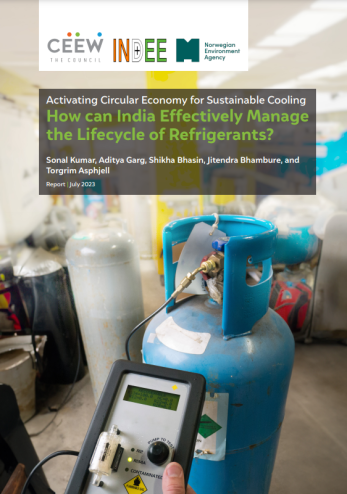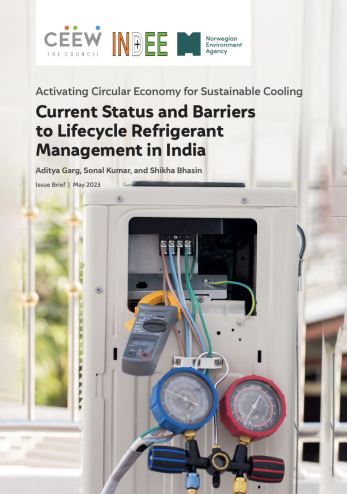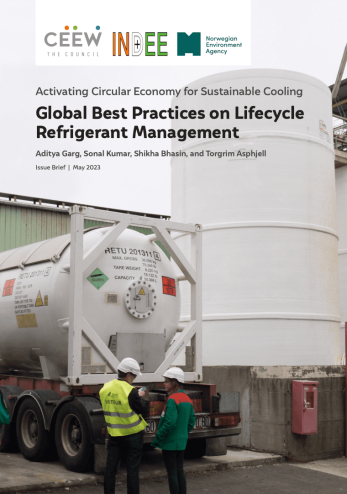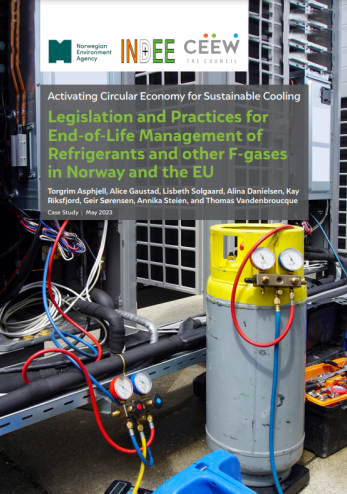Issue Brief
Standardising Practices in the Air Conditioner Servicing Sector
Lekha Sridhar
November 2017 | Sustainable Cooling
Suggested Citation: Sridhar Lekha. 2017. Standardising Practices in the Air Conditioner Servicing Sector. New Delhi: Council on Energy, Environment and Water.
Overview
This issue brief highlights the importance of standardising AC servicing practices. It serves as a preparatory activity to redying the AC servicing sector for the upcoming phase-down, to minimise hydrofluorocarbon (HFC) emissions from the servicing sector. Further, standardised good service practices (GSP) would be a yardstick of minimum expected performance from service technicians. Further, the brief offers concrete recommendations for using existing mechanisms to standardise servicing practices.
Key Highlights
- Compliance with standards can be mandated through legislation or they can be made voluntary, depending on the type of product or service.
- Standards can ensure safety considerations, harmonise practices, support economic growth and minimise technical barriers to trade.
- The AC servicing sector in India uses 40 per cent of the total refrigerant consumption. This can be reduced through GSPs, the use of proper tools, and regular servicing of air-conditioning equipment.
- Other important GSPs for ACs include leak testing before refrigerant charging, calibrated charging, flushing without refrigerant, brazing/flaring of parts, and recovery of refrigerants. The list also includes practices of safe handling of refrigerants as many refrigerants are flammable, toxic or operate at high pressure.
- In the residential and commercial servicing sectors, a technician with servicing training was three times more likely to not follow poor service practices, as per a previous CEEW study.
- The 2017 study also noted that there was a limited impact of servicing training on GSPs in the mobile AC sector.
- About 10 per cent of the residential AC technicians and 16 per cent of the commercial AC technicians who had received training were not following GSPs.
- The Qualification Packs (QPs), which are a set of National Qualification Standards (NOS), drives the creation of curriculum, and assessments by the sector skill councils.
Key Recommendations
- Focus on the practices of AC technicians who install and repair air conditioners. This is necessary if countries want to successfully phase down high-global-warming-potential refrigerants.
- Restructure the NOS to include performance criteria that provide specific guidance to training centres on GSPs, minimum technical requirements of tools and equipment, and well-developed standard operating procedures for different types of ACs to aid HFC phase-down.
The AC servicing sector in India uses 40 per cent of the total refrigerant consumption. This can be reduced through GSPs, the use of proper tools, and regular servicing of air-conditioning equipment.







